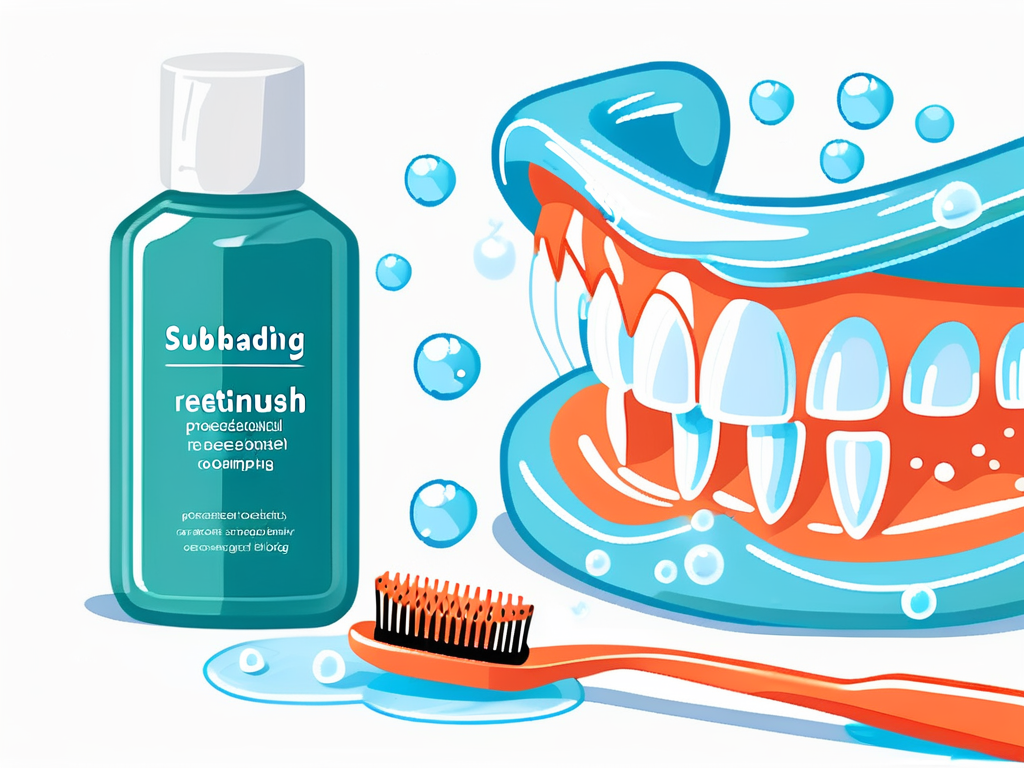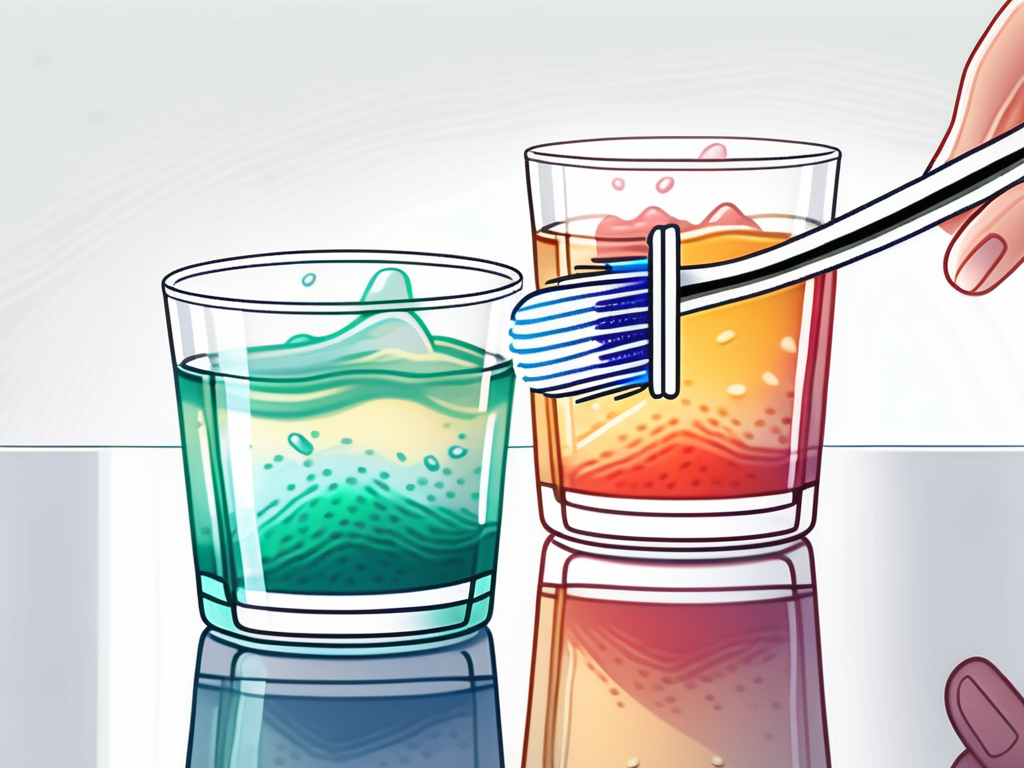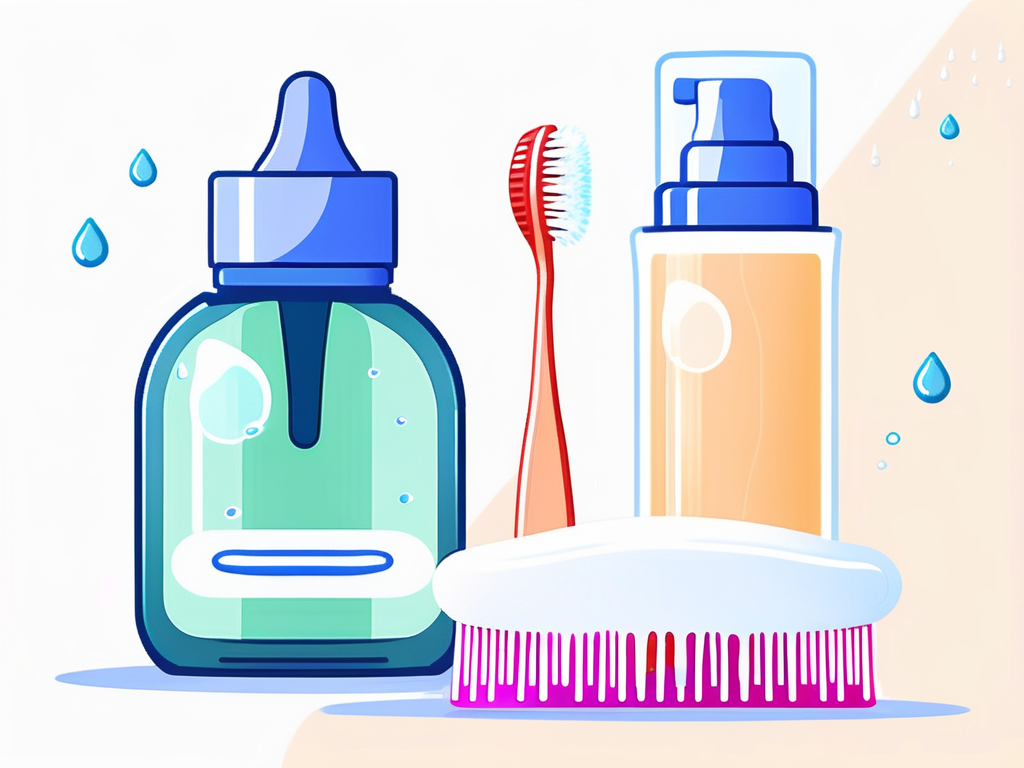Retainers are an essential part of orthodontic treatment, helping to maintain the position and alignment of teeth. However, it's not just braces that require regular care and attention - retainers also need proper cleaning to ensure their effectiveness and to prevent the buildup of bacteria. In this article, we will explore the importance of cleaning retainers and the role vinegar can play in keeping them fresh and hygienic.
Understanding the Importance of Cleaning Retainers
Keeping your retainer clean is crucial for several reasons. Firstly, regular cleaning helps to remove plaque, tartar, and food particles that can accumulate on the surface of the retainer. This buildup not only makes the retainer look unsightly, but it also creates a breeding ground for bacteria. Secondly, neglecting retainer hygiene can lead to oral health issues such as bad breath, gum inflammation, and even tooth decay. By following a proper cleaning routine, you can maintain good oral hygiene and prolong the lifespan of your retainer.

Why Regular Cleaning is Essential
Regular cleaning of retainers is essential to prevent the growth of harmful bacteria and the development of plaque and tartar. Bacteria thrive in warm and moist environments, and the mouth provides the perfect conditions for their growth. When you wear a retainer, it creates a snug fit against your teeth, allowing bacteria to easily adhere to its surface. If left unchecked, these bacteria can cause oral health issues such as gum disease and tooth decay.
Risks of Neglecting Retainer Hygiene
Neglecting retainer hygiene can have serious consequences for your oral health. Poorly cleaned retainers can harbor bacteria that can cause bad breath and contribute to the development of gum disease. Additionally, plaque and tartar buildup on the retainer can lead to tooth decay and cavities. For these reasons, it is crucial to establish a regular cleaning routine for your retainer.
Moreover, maintaining a clean retainer not only benefits your oral health but also ensures the longevity of your retainer. Over time, if not properly cleaned, the buildup of plaque and tartar can weaken the structure of the retainer, making it less effective in maintaining the alignment of your teeth. This can result in the need for costly repairs or even replacement of the retainer.
Furthermore, a clean retainer contributes to overall oral hygiene. When you wear a retainer, it acts as a barrier between your teeth and the outside world. By keeping it clean, you are preventing the transfer of harmful bacteria from the retainer to your teeth and gums. This helps to maintain a healthy oral environment and reduces the risk of developing oral health issues.
The Role of Vinegar in Cleaning Retainers
Vinegar is a natural and effective cleaning agent that can be used to clean retainers. Its acidic nature helps to break down and dissolve plaque and tartar, making it easier to remove. Additionally, vinegar has antimicrobial properties that can help kill bacteria that may be present on the retainer's surface.
Properties of Vinegar that Aid Cleaning
Vinegar contains acetic acid, which gives it its cleansing properties. Acetic acid helps to break down the buildup on the retainer, making it easier to remove. Additionally, vinegar's acidity creates an environment that is inhospitable to bacteria, further aiding in the cleaning process.
Safety of Vinegar for Oral Appliances
Using vinegar to clean retainers is generally safe, as long as it is done correctly. However, it's important to note that vinegar may not be suitable for all types of retainers. If you have a retainer with metal components or certain types of plastic, it is recommended to consult your orthodontist before using vinegar as a cleaning agent. They can provide guidance on the best cleaning methods for your specific retainer.
Furthermore, vinegar is not only effective in cleaning retainers but can also help remove stubborn stains and odors. Its natural acidic properties make it a versatile cleaning agent for various household items. When using vinegar to clean your retainer, it is recommended to dilute it with water to prevent any potential damage to the retainer's material.
Alternative Cleaning Methods
In addition to vinegar, there are other cleaning methods that can be used to maintain the cleanliness of your retainer. Some people opt for using mild dish soap and water to clean their retainers, as this can be gentler on certain materials. Alternatively, specialized retainer cleaning tablets are available for purchase, providing a convenient and effective way to keep your retainer fresh and bacteria-free.
Preparing Your Retainer for Cleaning
Before you can start using vinegar to clean your retainer, it's important to ensure it is properly prepared. This involves removing the retainer correctly and giving it an initial rinse and inspection.
Proper care and maintenance of your retainer are crucial to its longevity and effectiveness. By following a few simple steps, you can keep your retainer clean and free from harmful bacteria, ensuring your oral health remains in top condition.
Removing the Retainer Correctly
To remove your retainer, gently lift it off your teeth. Avoid applying excessive force or using sharp objects, as this can damage the retainer or cause injury to your mouth. Remember, your retainer is designed to fit snugly but comfortably, so a gentle touch is all that's needed for removal. If you're unsure about the correct way to remove your retainer, consult your orthodontist for guidance.
It's essential to handle your retainer with care to prevent any misshaping or distortion. Improper handling can lead to discomfort and may affect the fit of the retainer over time. By practicing gentle removal techniques, you can maintain the integrity of the retainer and ensure it continues to do its job effectively.
Initial Rinse and Inspection
After removing the retainer, give it a thorough rinse under lukewarm water. This will help remove any loose debris or saliva. Take this opportunity to inspect the retainer for any visible signs of wear or damage. Regular inspection can help you catch any issues early on, preventing further damage and ensuring the retainer remains in good condition.
During the inspection, pay close attention to the alignment of the retainer and check for any changes in its shape. Any deviations from the original form may indicate a need for adjustment or replacement. By staying vigilant and addressing any concerns promptly, you can maintain the effectiveness of your retainer and avoid potential setbacks in your orthodontic treatment.
Step-by-Step Guide to Cleaning Retainers with Vinegar
Now that your retainer is prepared, it's time to start the cleaning process using vinegar. Follow these step-by-step instructions to ensure effective cleaning:

Mixing the Vinegar Solution
Start by preparing a solution of equal parts water and vinegar. Use a clean container to mix the solution, ensuring that there is enough liquid to fully submerge the retainer. Gently stir the solution to ensure the vinegar and water are thoroughly combined.
Vinegar is a natural disinfectant that can help kill bacteria and remove unwanted odors from your retainer. Its acidic nature also aids in breaking down any buildup on the retainer's surface, leaving it clean and fresh.
Soaking the Retainer
Once the vinegar solution is ready, place the retainer in the container, ensuring it is fully submerged. Allow it to soak for approximately 15-20 minutes. During this time, the vinegar will work to break down any plaque, tartar, or bacteria present on the retainer's surface.
While the retainer is soaking, you may notice tiny bubbles forming on its surface. This is a sign that the vinegar is actively working to lift off debris and bacteria, ensuring a deep cleanse for your retainer.
Post-Soaking Cleaning Process
After the soaking period, remove the retainer from the vinegar solution and rinse it thoroughly under lukewarm water. Use a soft-bristled toothbrush or a specialized retainer brush to gently brush the retainer, paying attention to all surfaces. This will help remove any remaining residue and ensure a thorough clean.
Remember to rinse the retainer thoroughly after brushing to remove any loosened debris. Inspect the retainer closely to ensure all buildup has been removed before storing or wearing it again. Regular cleaning with vinegar can help maintain the hygiene and longevity of your retainer.
Tips for Maintaining Retainer Cleanliness
In addition to regular cleaning with vinegar, there are other steps you can take to maintain the cleanliness of your retainer and promote good oral hygiene.

Daily Care Routine for Retainers
Developing a daily care routine for your retainer is crucial for maintaining its cleanliness. This includes brushing your retainer with a soft-bristled toothbrush and mild soap after each use. Rinse it thoroughly under lukewarm water before placing it back in your mouth. Additionally, avoid exposing your retainer to excessive heat, as this can cause damage.
What to Avoid to Prevent Damage
To ensure the longevity of your retainer, there are certain things you should avoid. Firstly, avoid using hot water or harsh chemicals when cleaning your retainer, as this can cause warping or damage. Additionally, refrain from biting or chewing on your retainer, as this can lead to cracks or breaks. Lastly, always store your retainer in a clean, ventilated case when it's not in use to prevent the buildup of bacteria and protect it from accidental damage.
By following these tips and incorporating vinegar into your cleaning routine, you can effectively clean your retainers and maintain good oral hygiene. Remember, a clean retainer leads to a healthy smile!
Now that you know how to keep your retainer spotless with vinegar, why not ensure your night-time oral care is just as impeccable? Remi offers custom mouth guards that are tailored to your unique smile, providing protection against teeth clenching and grinding. With the convenience of The Remi Club subscription service, you'll receive a new set of top and bottom mouth guards every six months, ensuring your oral care is always up to date. Experience the perfect fit and superior quality of Remi's dental-grade, BPA-free mouth guards, all made in the USA. Ready to safeguard your smile and save up to 80% compared to traditional options? Shop Now and join the ranks of satisfied customers enjoying a healthier, happier smile with Remi.













